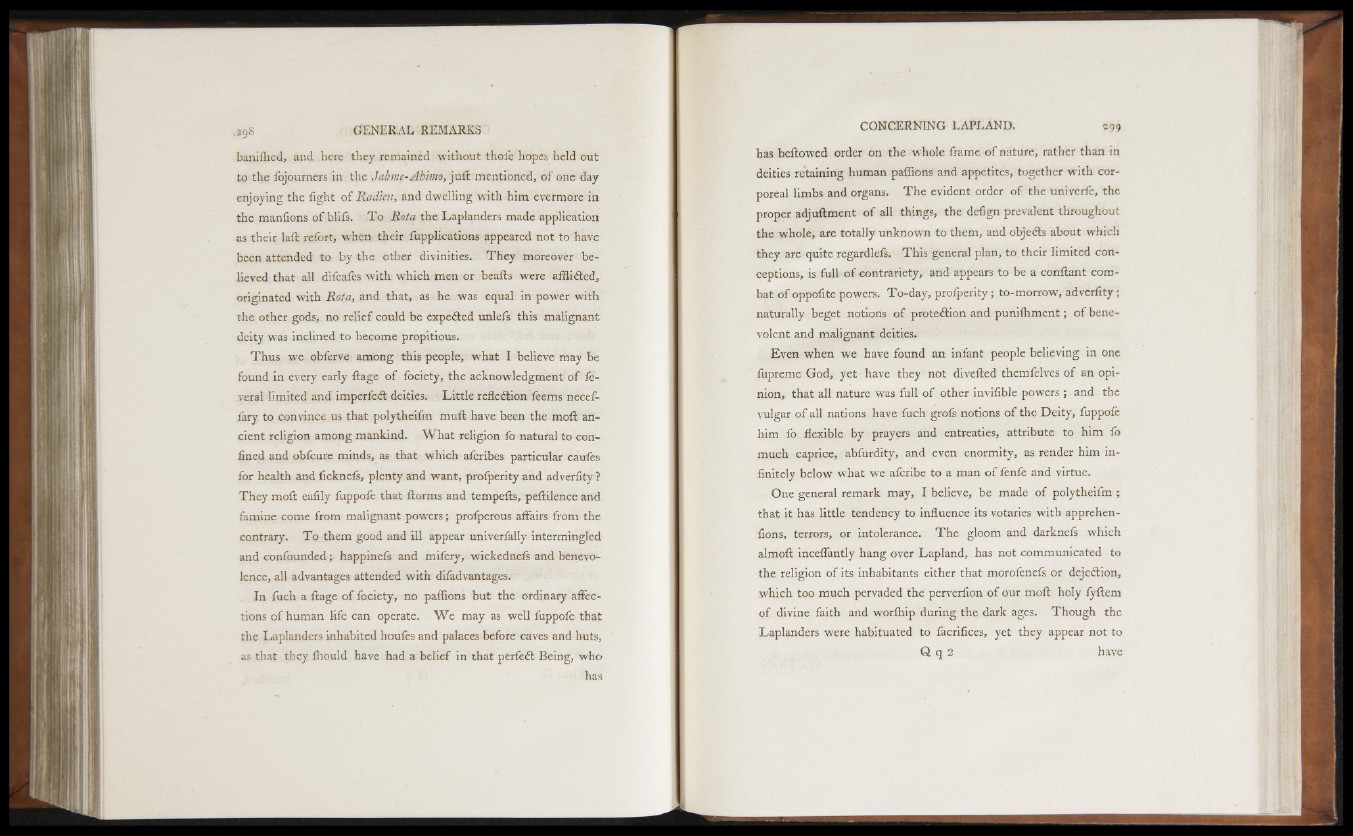
banifhed, and here they remained without thofe hopes held out
to the fojourners in the Jabme-Abimo, ju fl mentioned, of one day
enjoying the fight of Radien, and dwelling with him evermore in
the manfions of blifs. To Rota the Laplanders made application
as their lafl refort, when their fupplications appeared not to have
been attended to by the other divinities. They moreover believed
that all difeafes with which men or beafts were affii&ed,
originated with Rota, and that, as he was equal in power with
the other gods, no relief could be expedted unlefs this malignant
deity was inclined to become propitious.
Thus we obferve among this people, what I believe may be
found in every early ftage of foeiety, the acknowledgment of fe-
veral limited and imperfedt deities. Little refledtion feems necef-
fary to convince us th a t polytheifm mufl have been the moll ancient
religion among mankind. W h a t religion io natural to confined
and obfcure minds, as that which afcribes particular caufes
for health and ficknefs, plenty and want, profperity and adverfity ?
They moll eafily fuppofe th a t itorms and tempefls, peililence and
famine come from malignant powers; profperous affairs from the
contrary. To them good and ill appear univerfally intermingled
and confounded; happinefs and mifery, wickednefs and benevolence,
all advantages attended with difadvantages.
In fuch a llage of foeiety, no paffions but the ordinary affections
of human life can operate. W e may as well fuppoie that
the Laplanders inhabited houfes and palaces before caves and huts,
as that they ihould have had a belief in that perfedt Being, who
has
has bellowed order on the whole frame of nature, rather than in
deities retaining human paffions and appetites, together with corporeal
limbs and organs. T h e evident order of the univerfe, the
proper adjullment o f all things, the defign prevalent throughout
the whole, are totally unknown to them, and objedls about which
they are quite regardlefs. This general plan, to their limited conceptions,
is full of contrariety, and appears to be a conllant combat
o f oppofite powers. To-day, profperity; to-morrow, adverfity ;
naturally beget notions of protection and p unilhm ent; of benevolent
and malignant deities.
Even when we have found an infant people believing in one
fupreme God, yet have they not diveiled themfelves of an opinion,
that all nature was full o f other invifible powers ; and the
vulgar of all nations have fuch grois notions o f the Deity, fuppoie
him fo flexible by prayers and entreaties, attribute to him fo
much caprice, abfurdity, and even enormity, as render him infinitely
below what we afcribe to a man of fenie and virtue.
One general remark may, I believe, be made of polytheifm ;
that it has little tendency to influence its votaries with apprehen-
fions, terrors, or intolerance. T h e gloom and darknefs which
almofl inceffantly hang over Lapland, has not communicated to
the religion of its inhabitants either th a t morofenefs or dejedtion,
which too much pervaded the perverfion o f our moil holy fyflem
of divine faith and worfhip during the dark ages. Though the
Laplanders were habituated to facrifices, yet they appear not to
Q, q 2 have